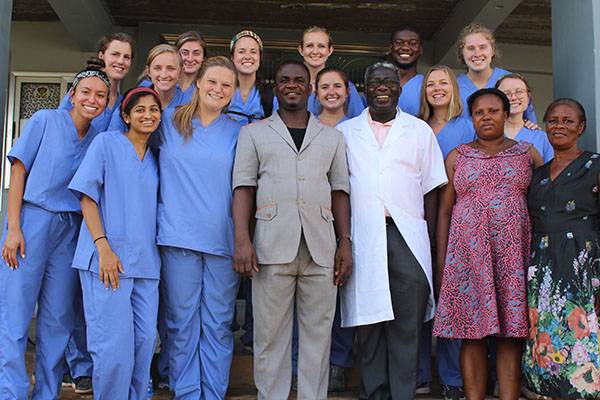Faculty and Staff FAQs
Experiential learning is the development of knowledge, skills, abilities, values, behaviors and attitudes through first-hand experiences outside of the traditional classroom. Experiential learning involves learning through doing, but more importantly “learning through reflection on doing” and can involve an array of hands-on activities and experiences. Students who participate in experiential learning develop critical thinking and problem solving skills and are much better prepared for the workforce or advanced study after graduation.
All undergraduate students are required to complete at least one experiential learning activity before graduation. Our faculty have identified courses and other activities that will fulfill the requirement for students in each school and college. Advisors will help students find appropriate experiential learning opportunities.
Each school and college has a list of approved courses and non-credit activities students can use to fulfill the requirement. Each college has an Experiential Learning Certification Officer who serves as a resource and liaison for faculty and students. See the instructions on how to submit experiential learning course proposals through CAPA and the learning outcomes for all six areas for additional information. Contact the OEL with any questions or assistance.
See the full rubric of learning outcomes on our website.
- Creative Experiences
Graduates who participate in creative experiences will articulate, implement, and reflect on a substantive application of their academic foundations to a real-world setting and/or challenge. - Study Abroad/Field Studies
Graduates who participate in study abroad or field study will interact with a culture and/or region distinct from their own and engage in academic inquiry and application afforded by the specific off-campus setting. - Internships
Graduates who participate in an internship will have practiced skills or methods related to their field of study through supervised work in a professional or organizational setting. - Leadership
Graduates who participate in leadership activities ill articulate, implement, and reflect on a substantive application of their academic foundations to a real-world setting and/or challenge. - Faculty Mentored Research
Graduates who participate in faculty-mentored research will demonstrate and describe how systematic and in-depth inquiry into a problem contributes to the discovery or interpretation of knowledge significant to their field of study. - Service-Learning
Graduates who participate in service-learning will demonstrate the ability to identify a community need and strategies for addressing it through mutual learning, critical analysis, reflection and collaboration with a community partner.
